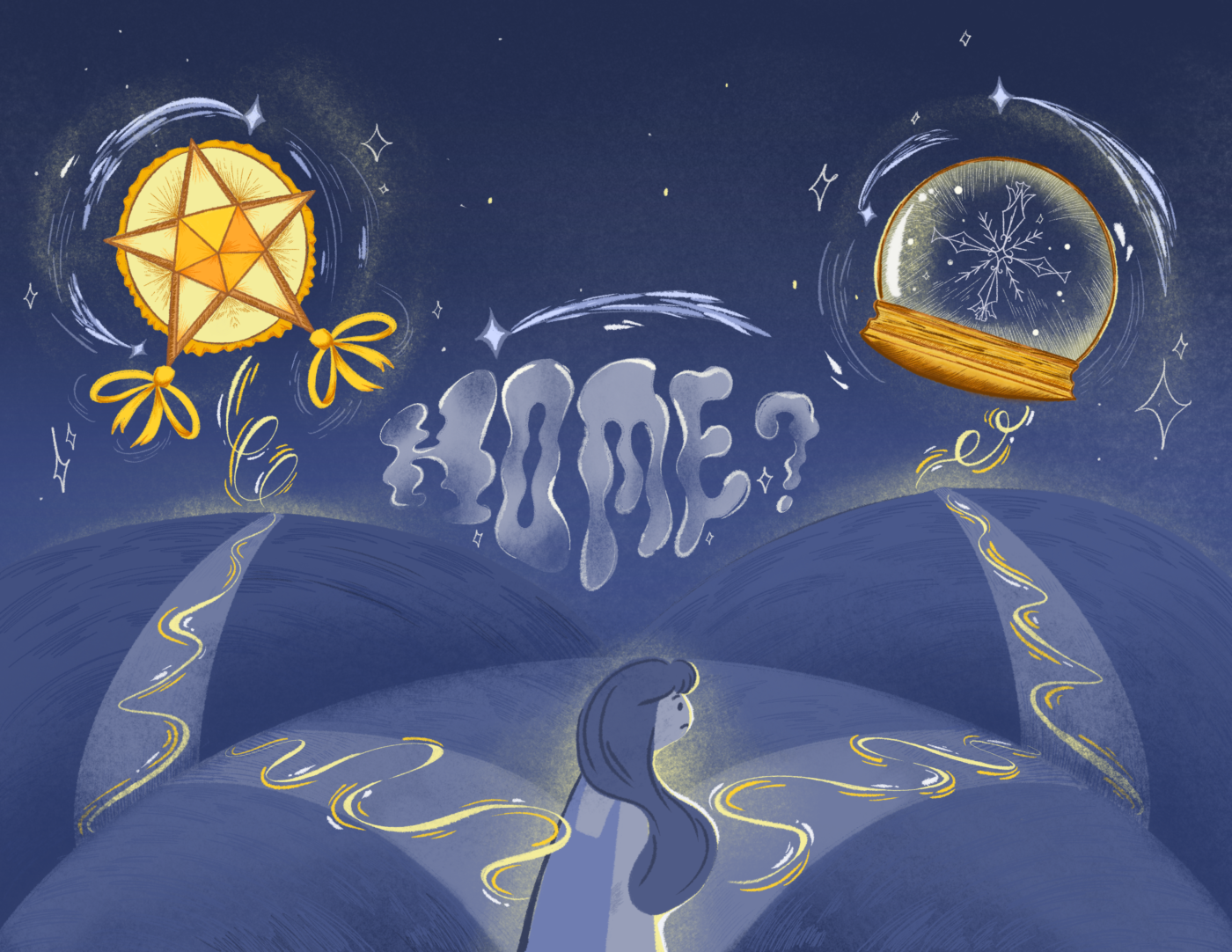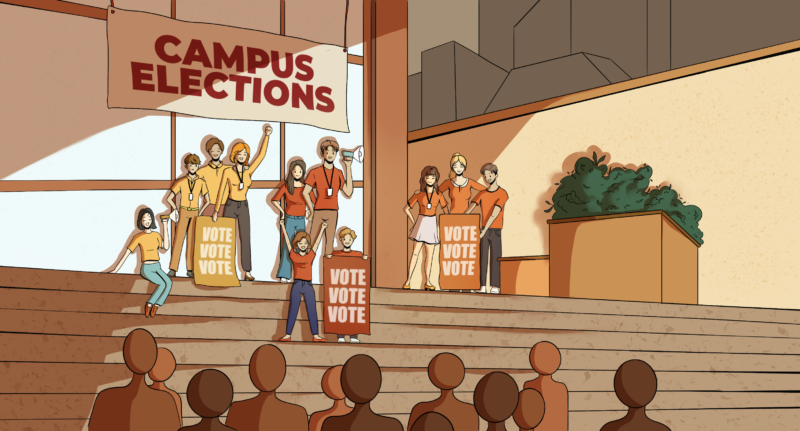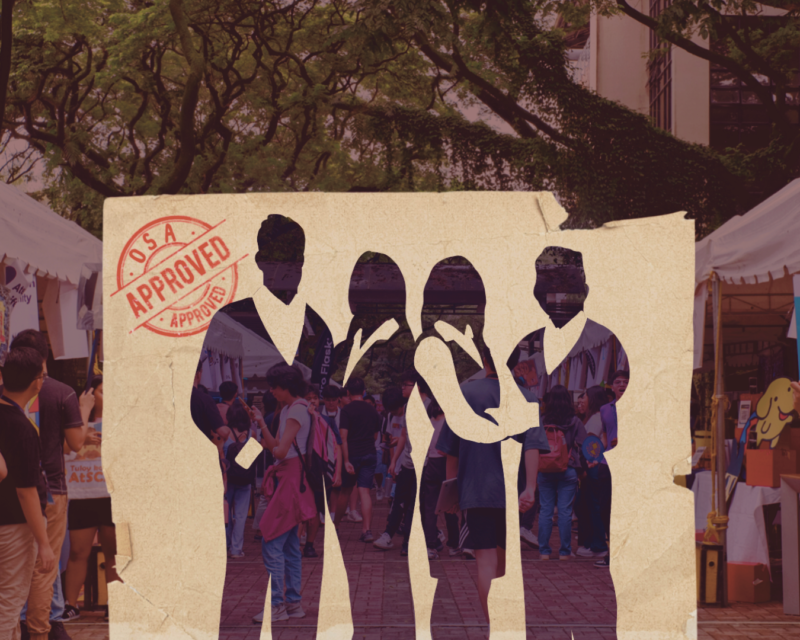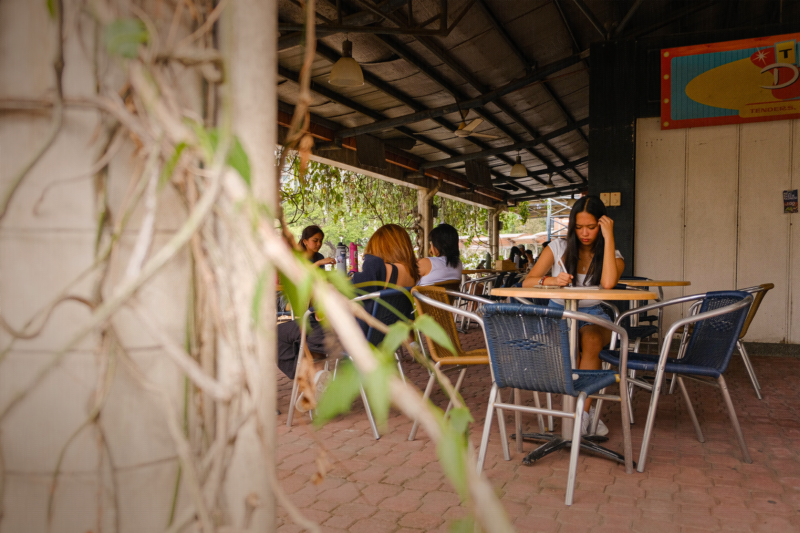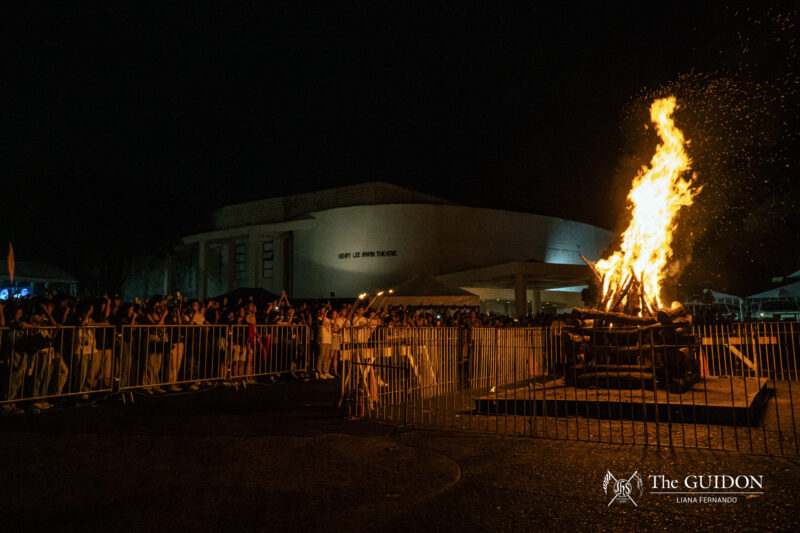IN THE current globalized world, some people voyage on an unprecedented scale. Third-culture kids (TCK) are those who navigate such territories. First used in the 1950s, the term describes those who have spent a large portion of their developmental years outside their parents’ culture.
Often having spent most of their lives moving around, they are then subject to a unique and novel coming-of-age experience—becoming a jack of all places but a member of none. Being a part but apart is their story.
Part of your world
Within the Loyola Schools (LS) are its very own TCKs who offer a nuanced perspective on the idea of identity.
“No matter how much I try, Shawarma is really built differently. They’re good, just not Shawarma,” says Sherese Sanoria (3 AB COM), a TCK from Qatar who now lives in the Philippines. She states that she first learned of her identity as a TCK through online debates about shawarma, a popular Middle Eastern dish.
Sanoria shares how she experiences difficulty when she is in conversation with her peers about the concept of “home.” “Every time they ask me, ‘Oh, where are you from?’ I have to pick between so many places like ‘Where am I actually from? Like what can I say to people?’” she questions. Oftentimes, this weariness is coupled with feelings of loneliness and anxiety.
Amid these lonely transitions, TCKs must contend with adjustment to varying cultural norms and practices on their own. Afterall, being immersed in an unfamiliar culture entails constant, deliberate assimilation into the community.
Feeling such strain as she moved from the United Arab Emirates to the Philippines, Marlene Magdaluyo (4 AB COM) opens up about how she finds it risky to participate in conversations with friends about which high schools everyone graduated from. Magdaluyo feels anxious that she’ll be seen differently for having gone to a high school overseas.
To her, there is an apparent emphasis on where TCKs come from, rather than who they are. This contrast can be challenging to live with as it induces a sense of exclusion from the community around them.
Despite these experiences, both Sanora and Magdaluyo share generally positive stories about adjusting to the Ateneo. The TCKs attribute this experience to the Ateneo’s use of English, as well as the friendliness of its community, as in helping them find a home in their new country.
Carrying losses, gaining connections
In this transition between from one culture to another, TCKs develop what is called a collective identity. These identities are initially drawn from their society’s cultural norms which then help create a sense of belongingness with their communities. In particular, TCKs are able to construct their sense of self through interactions with their surrounding society and its structures. However, TCKs may find it difficult to develop a strong grasp of their identity given the constant changes to the society surrounding them.
MA Sociology student Jan Rupert Alfeche says that these changes stunt their identity formation. “They’re largely robbed of their agency … They’re just thrust into navigating these various cultural worlds,” he laments.
Alfeche also highlights the difference between TCKs’ identity development to that of non-TCKs. While forming his thesis on cross-cultural kids, he found that although non-TCKs may have created a strong sense of their cultural identity when they reach their 20s, TCKs will most likely achieve this in their 30s.
With this, he emphasizes the TCK experience as “outside looking in.” While some TCKs may feel as if they have already adapted well to their new country, Alfeche reveals that their cross-cultural experiences will always detach them from their surrounding community. For example, this manifests in Sanoria’s feeling of being “less Bisaya” for lacking fluency in the language.
To this effect, the term cultural marginality encapsulates the struggles TCKs face in always “being at the margins.”
Despite these challenges, their multicultural experiences enable them to build a more culturally-inclusive community, such as by engaging with those around them in cultural conversations. TCKs can then actively change their cultural space, too, by adding more nuance to what it means to be Filipino.
For Alfeche, TCKs are the “physical embodiment of globalization.” Their own interactions parallel the way countries interchange on the global scale, forming nuanced perspectives on the world’s interactions.
“That’s the reality cross-cultural kids bring into the conversation—that there is more than one perspective. And that being Filipino is more than just what we understand here within the archipelago,” he states.
In the end, the nuanced perspectives that TCKs carry mold them to become active participants in their own community’s cultural identity.
Within the LS, the Ateneo Student Exchange Council (ASEC) helps build a community for both TCKs and International Exchange Students (IXS). Aside from their welcoming initiatives and parties, ASEC sometimes pairs an IXS member with a TCK one in their organization’s buddy system for an entire semester.
Similar to ASEC’s events and initiatives, Alfeche suggests that the LS community as a whole can better accommodate TCKs and non-TCKs by allowing them to engage in more cultural conversations. Through this interchange, TCKs are able to glean deeper insights on Filipino culture. Likewise, non-TCKs are able to form a new perspective on being Filipino and gain knowledge of other cultures.
At the same time, Alfeche encourages the Ateneo community to approach TCKs with “a certain level of grace,” recognizing that TCKs may lack a sense of belonging and being more mindful of their feelings.
Home is where the heart is
While the LS community continues to take steps in creating a home for its diverse student population, the definition of “home” for TCKs remains an elusive idea. Away from familiarity, they are challenged to navigate vastly different worlds, creating memories that serve as keepsakes to the people and places they eventually have to leave behind.
As someone who jumped back and forth between Qatar and Cebu, Sanoria finds her sense of home in the latter. “I don’t really tie it to a physical place anymore. It’s really just where my family is. So home for me is [in] Cebu. That’s where my family stays,” she shares.
Beyond the people, home also exists in the intangibles: the warmth of a mother’s hug, the comfort from eating one’s favorite food, and the assurance from hearing a long-time friend’s wise words.
These are a testament that home is no longer defined by geographical space, especially for TCKs whose spaces are constantly in flux.
Ultimately, their home does not follow a strict definition as it becomes rooted in feeling. Magdaluyo says, “If you believe that it is home and it gives you that sense of comfort, love, and assurance—then you found it.”

